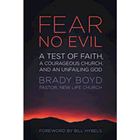
My friend, author Kimberly Rae, has Addison’s disease, hypoglycemia,
asthma and a cyst on her brain. She knows what it is like to grow tired of
dependence on medication, feel guilty over needing help, and to be frustrated over
fielding the frequent comment, “But you don’t look sick!”
Her new book, Sick
& Tired: Empathy, Encouragement, and Practical Help for those Suffering
with Chronic Health Problems, along with its companion, Laughter for the Sick & Tired, are
for the nearly 1 in 2 people in America who live with chronic
illness.
 When I asked why she wrote Sick and Tired, Kimberly responded, "After having health problems for over 15 years, I
wanted a book that was funny, empathetic, encouraging, and a reminder that God
loved me and had a purpose for me despite my limitations and pain. I couldn’t
find that book, so I wrote it! I want others to read my book as a safe place
where they feel believed, understood, and where they find a few reasons to
smile!"
When I asked why she wrote Sick and Tired, Kimberly responded, "After having health problems for over 15 years, I
wanted a book that was funny, empathetic, encouraging, and a reminder that God
loved me and had a purpose for me despite my limitations and pain. I couldn’t
find that book, so I wrote it! I want others to read my book as a safe place
where they feel believed, understood, and where they find a few reasons to
smile!"
To get you started, Kimberly is giving my readers a free excerpt from Sick and Tired:
Sick & Tired: Empathy, Encouragement, and
Practical Help for those Suffering with
Chronic Health Problems
Be careful about reading health books. You
may die of a misprint. Mark Twain
Sometimes
I want to slap a sticky note on my forehead that says, “I am sick. No, I don’t
look sick at this moment. But I am not faking having a disease just because I’m
not in a wheelchair, and I am not a freak.”
Now,
I am aware walking around with a note like that on my head would actually put
me in the freak category. Not to mention all those words would only fit on a
Post-It note if I wrote it very, very small, and then people would have to get
really close to me to read it, and that might just put me over the edge. I’m
really into my personal space.
The
thing is, I don’t like talking about having chronic health problems that
interfere with my life. I don’t like the way people look down, over, and around
me when they realize I have a chronic illness. Or worse yet, the suspicious way
their eyes narrow when they decide it’s all in my head, or I’m a hypochondriac.
Why
does it bother me to tell people I have health problems? Doesn’t everybody at
some point? I suppose that’s the crux right there. For most people, the
difference is in the “some point” part. They have a problem. They go to the
doctor. Doctor fixes it. Life moves on. It was a small, annoying inconvenience.
For
me, and likely for you since you’re reading this, your problem is not so
temporary. You’ve got it for life, or until science finds a cure, which for
some diseases is as likely as winning the lottery when you haven’t even bought
a ticket. So we make people nervous.
Instead,
Americans spend billions trying to avoid anything that even smells like
sickness. Our country has enough pills, vitamins, and herbal remedies to make
you sick even if you started out healthy, or at least to make your urine turn
neon yellow—which is an interesting phenomenon—though likely not worth all the
money it took to make it happen.
I
would like to trade in my health problems and be well again. I sometimes think
that would be getting my life back. But the truth is, this is my life, and as I
have come to (almost) accept that fact and make the best of it, I think there’s
hope for me.
Maybe
not to cease being a freak to some, but to cease seeing myself as a victim, as
a traumatic case, or even as a lesser being because of my illness.
That
being the goal, maybe I’ll remove the hypothetical Post-It note from my
forehead and put it in my back pocket, to be removed periodically and waved in
people’s faces only when I’m having a tough day.
It’s
a start anyway.
Check
out Sick & Tired today at www.Amazon.com Also look for its companion book,
Laughter for the Sick & Tired, on Amazon or on Kimberly’s website,
www.kimberlyrae.com











